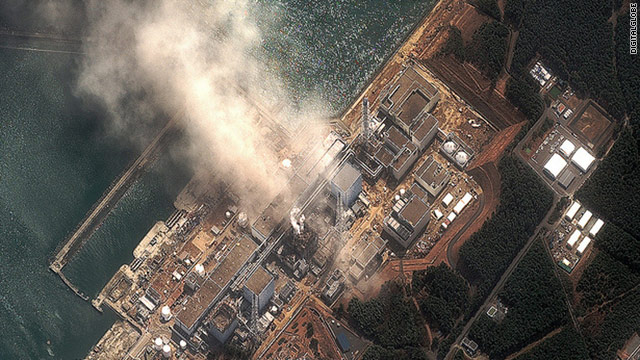The latest incidents in Japan -- an explosion Tuesday at the plant's No. 2 reactor and a fire in a cooling pond used for nuclear fuel at the No. 4 reactor -- briefly pushed radiation levels at the plant to about 167 times the average annual dose of radiation, according to details released by the IAEA.
"There is still a very high risk of further radioactive material coming out," Prime Minister Naoto Kan said, asking people to remain calm.
Another problem with trying to predict contamination is that the levels don't necessarily go down the farther you get from the source, according to David Lochbaum, director of the Nuclear Safety Project for the Union of Concerned Scientists.
"The contamination levels aren't linear, so the farther away you get doesn't necessarily mean you get a lower dose rate. Chernobyl, in some cases, had areas 100 miles away from the facility having significantly higher radiation levels than areas only 10 or 15 miles away," he explained Tuesday in a teleconference with reporters.
"The winds would carry the radioactivity and then the rainfall would bring it down to the ground to contaminate where people were, he said. "So there are a number of factors that determine where it goes and who's in harm's way."
He said Tuesday he could not rule out the possibility of a meltdown at the troubled reactors.
A North Carolina-based company, Nukepills.com, has donated about 50,000 potassium iodide tablets to a hospital in Tokyo. Potassium iodide "is recommended by health officials worldwide to prevent thyroid cancer of those exposed to radioactive iodine in the event of a nuclear reactor accident or detonation of a nuclear bomb," said a statement from the company, which describes itself as a internet-based provider of radiation emergency preparedness products.
"We are very pleased that these tablets will be given to people directly affected by the nuclear crisis," said Troy Jones, president of Nukepills.com.

